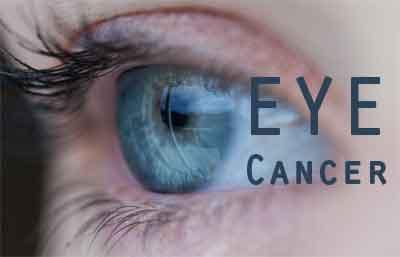- Home
- Editorial
- News
- Practice Guidelines
- Anesthesiology Guidelines
- Cancer Guidelines
- Cardiac Sciences Guidelines
- Critical Care Guidelines
- Dentistry Guidelines
- Dermatology Guidelines
- Diabetes and Endo Guidelines
- Diagnostics Guidelines
- ENT Guidelines
- Featured Practice Guidelines
- Gastroenterology Guidelines
- Geriatrics Guidelines
- Medicine Guidelines
- Nephrology Guidelines
- Neurosciences Guidelines
- Obs and Gynae Guidelines
- Ophthalmology Guidelines
- Orthopaedics Guidelines
- Paediatrics Guidelines
- Psychiatry Guidelines
- Pulmonology Guidelines
- Radiology Guidelines
- Surgery Guidelines
- Urology Guidelines
Genetic factors may increase risk of eye cancer

New York : Specific inherited genetic differences may increase the risk of eye cancer uveal melanoma, a rare form of melanoma that arises from pigment cells that determine eye colour, a new study has suggested.
Previous clinical data suggested that uveal melanoma is more common in Caucasians and individuals with light eye colouration. However, the genetic mechanisms underlying this cancer's development were largely unknown.
In this new study published in the journal Scientific Reports, the scientists reported the first evidence of a strong association between genes linked to eye colour and development of uveal melanoma and suggested that inherited genetic factors associated with eye and skin pigmentation could increase a person's risk for uveal melanoma.
"Our study suggests that in eye melanoma the pigmentation difference may play a direct cancer driving role, not related to sunlight protection," said Mohamed Abdel-Rahman, researcher at the Ohio State University.
The researchers analysed samples from more than 270 patients with uveal melanoma. Because there is a known clinical connection between eye melanoma and skin cancer, in this study researchers sought to determine whether there were commonly shared genetic factors between both diseases, as the inherited genetic risk of skin melanoma has been more extensively explored in previous medical literature.
The team analysed 29 inherited genetic mutations previously linked with skin melanoma to determine if there was an associated risk of uveal melanoma.
This analysis revealed that five genetic mutations were significantly associated with uveal melanoma risk. The three most significant genetic associations occurred in a genetic region that determines eye colour.
Genetic susceptibility to uveal melanoma has been traditionally thought to be restricted only to small groups of patients with family history. The study showed the presence of novel genetic risk factors associated with this disease in a general population of uveal melanoma patients.
"This is a very important discovery that will guide future research efforts to explore the interactions of these pigmentary genes with other genetic and environmental risk factors in cancers not linked to sun exposure, such as eye melanoma. This could provide a paradigm shift in the field," Abdel-Rahman added.

Disclaimer: This site is primarily intended for healthcare professionals. Any content/information on this website does not replace the advice of medical and/or health professionals and should not be construed as medical/diagnostic advice/endorsement or prescription. Use of this site is subject to our terms of use, privacy policy, advertisement policy. © 2020 Minerva Medical Treatment Pvt Ltd